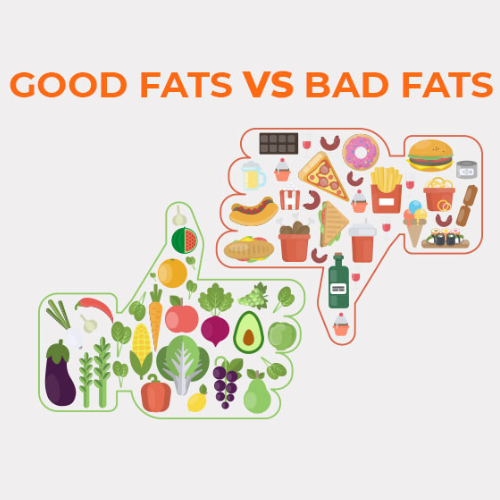In today's fast-paced world, prioritizing a healthy lifestyle is no longer a luxury, but a necessity. Two pillars underpin this pursuit: nutrition and fitness. These aren't merely isolated aspects of well-being; they form a dynamic and symbiotic relationship, deeply influencing each other and profoundly impacting our overall health and quality of life. This article delves into the significance of both, explores their intricate interplay, and provides practical guidance for seamlessly integrating them into your daily routine.
The Foundation: Unpacking the Power of Nutrition
Nutrition serves as the bedrock of a healthy lifestyle. The choices we make on our plates directly translate into our energy levels, metabolic function, and overall physical and mental well-being.
- Fueling the Body with a Balanced Diet: A balanced diet is not just about restricting certain foods; it's about nourishing the body with a diverse array of nutrients. This entails incorporating a variety of fruits, vegetables, lean proteins (such as poultry, fish, beans, and legumes), whole grains (like brown rice, quinoa, and oats), and healthy fats (such as avocados, nuts, and olive oil). For instance, incorporating leafy greens like spinach and kale provides essential vitamins and minerals, while berries are rich in antioxidants. This diverse approach ensures the body receives a comprehensive spectrum of vitamins, minerals, and antioxidants, essential for optimal cellular function and overall health.
- The Art of Portion Control (Quality Over Quantity): While the quality of our food is paramount, the quantity we consume plays an equally crucial role. Practicing mindful eating and adhering to appropriate portion sizes helps prevent overeating, manage calorie intake, and maintain a healthy weight. For example, using smaller plates can visually trick the brain into thinking it's receiving a larger portion.
- The Unsung Hero: Hydration Often underestimated, adequate hydration is a cornerstone of good health. Water plays a vital role in numerous bodily functions, including digestion, nutrient absorption, and temperature regulation. It also significantly impacts energy levels, cognitive function, and overall athletic performance. Studies have shown that even mild dehydration can impair cognitive function, leading to decreased focus and increased fatigue.
The Catalyst: The Invaluable Role of Physical Activity
Physical activity is not merely about burning calories; it's an investment in overall well-being. Regular exercise offers a multitude of benefits that extend far beyond aesthetics.
- Weight Management (A Two-Pronged Approach): Exercise, particularly a combination of cardiovascular activities (such as jogging, swimming, cycling) and strength training, plays a pivotal role in weight management. Regular physical activity helps burn calories, build lean muscle mass, and increase metabolic rate, all of which contribute to a healthy weight and body composition. For instance, a 30-minute brisk walk can burn approximately 150-200 calories.
- Cardiovascular Health (Strengthening the Heart): Engaging in regular cardiovascular exercise strengthens the heart and improves cardiovascular health. It increases endurance, lowers resting heart rate, and reduces the risk of heart disease, stroke, and other cardiovascular conditions. The American Heart Association recommends at least 150 minutes of moderate-intensity or 75 minutes of vigorous-intensity aerobic activity per week for adults.
- Mental Well-being (Exercise as a Mood Booster): Physical activity stimulates the release of endorphins, natural mood elevators that combat stress, anxiety, and depression. Exercise can improve sleep quality, boost self-esteem, and enhance overall mental well-being. Studies have shown that regular exercise can be as effective as medication in reducing symptoms of mild to moderate depression.
The Interplay: Where Nutrition and Fitness Converge
Nutrition and fitness are intricately intertwined, forming a synergistic relationship that amplifies their individual benefits.
- Fueling Performance (Optimizing Workout Efficiency): Proper nutrition provides the necessary fuel for effective workouts. Consuming a balanced meal or a healthy snack before exercise ensures adequate energy levels and optimal performance. For example, a pre-workout snack of a banana and a handful of almonds can provide sustained energy during a workout.
- Recovery and Repair (Nourishing the Body After Exercise): After intense physical activity, the body requires adequate nutrients for recovery and muscle repair. Consuming protein-rich foods, such as lean meats, fish, eggs, or plant-based protein sources, can aid in muscle protein synthesis and accelerate the recovery process. Consuming a protein shake or Greek yoghurt with berries within 30 minutes of exercise can help maximize protein synthesis.
- Weight Management (A Holistic Approach): Combining a balanced diet with regular physical activity is the most effective strategy for achieving and maintaining a healthy weight. This synergistic approach creates a calorie deficit, promotes fat loss, and preserves lean muscle mass. Studies have shown that individuals who combine a healthy diet with regular exercise are more likely to achieve and maintain weight loss compared to those who rely solely on diet or exercise.
A Journey Towards Holistic Well-being
Nutrition and fitness are inseparable partners on the journey towards a healthier, happier, and more fulfilling life. By prioritizing both and integrating them seamlessly into our daily routines, we can unlock a wealth of benefits, including improved physical and mental health, increased energy levels, enhanced athletic performance, and a greater sense of overall well-being. Remember, it's not about striving for perfection, but about making sustainable choices that nourish your body and empower you to live your best life.



